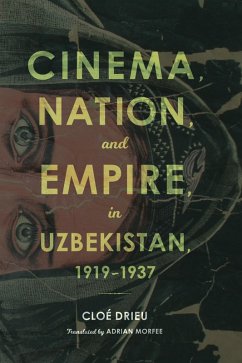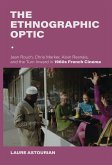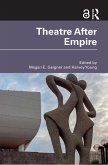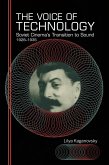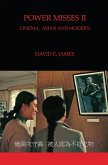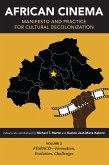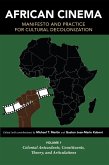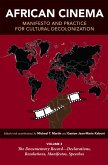Between the founding of Soviet Uzbekistan in 1924 and the Stalinist Terror of the late 1930s, a nationalist cinema emerged in Uzbekistan giving rise to the first wave of national film production and an Uzbek cinematographic elite. In Cinema, Nation, and Empire in Uzbekistan Cloé Drieu uses Uzbek films as a lens to explore the creation of the Soviet State in Central Asia, starting from the collapse of the Russian Empire up through the eve of WWII. Drieu argues that cinema provides a perfect angle for viewing the complex history of domination, nationalism, and empire (here used to denote the centralization of power) within the Soviet sphere. By exploring all of film's dimensions as a socio-political phenomenon-including film production, film reception, and filmic discourse-Drieu reveals how nation and empire were built up as institutional realities and as imaginary constructs.
Based on archival research in the Uzbek and Russian State Archives and on in-depth analyses of 14 feature-length films, Drieu's work examines the lively debates within the totalitarian and so-called revisionist schools that invigorated Soviet historiography, positioning itself within contemporary discussions about the processes of state- and nation-building, and the emergence of nationalism more generally. Revised and expanded from the original French, Cinema, Nation, and Empire in Uzbekistan helps us to understand how Central Asia, formerly part of the Russian Empire, was decolonized, but later, in the run-up to the Stalinist period and repression of the late 1930s, suffered a new style of domination.
Based on archival research in the Uzbek and Russian State Archives and on in-depth analyses of 14 feature-length films, Drieu's work examines the lively debates within the totalitarian and so-called revisionist schools that invigorated Soviet historiography, positioning itself within contemporary discussions about the processes of state- and nation-building, and the emergence of nationalism more generally. Revised and expanded from the original French, Cinema, Nation, and Empire in Uzbekistan helps us to understand how Central Asia, formerly part of the Russian Empire, was decolonized, but later, in the run-up to the Stalinist period and repression of the late 1930s, suffered a new style of domination.
Dieser Download kann aus rechtlichen Gründen nur mit Rechnungsadresse in A, D ausgeliefert werden.

